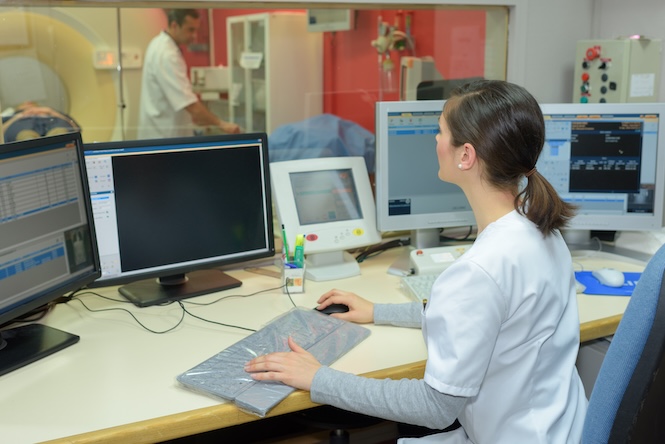Infoway has conducted the fourth national survey of Canadian nurses on the use of digital health technologies in practice. This survey constitutes a series of surveys on the use and the impact of digital health technologies on nursing practice conducted in partnership with the Canadian Nurses Association (CNA) and the Canadian Nursing Informatics Association (CNIA). Three iterations of the national survey of Canadian nurses have been conducted in 2014, 2017, and 2020.
Some of the key findings
Nine in ten nurses (91%) providing direct patient care surveyed use electronic record / clinical information systems (an increase from 86% in 2020), with 38% saying they use electronic records only – up from 27% in 2020. Compared to 2020, there has been an increase in reported use of various electronic record/clinical information system functionalities to support patient care, including: communication to other health professionals within their organization, list of all medications and discharge summaries, medication reconciliation, access to provincial/territorial patient electronic health record systems, clinical decision support tools, and transfer of patients’ health information securely to other health professionals. Improved interoperability is perceived to be beneficial to nursing practice, with about nine in ten nurses surveyed agreeing that the ability to electronically access/seamlessly exchange structured patient information will improve their access to complete patient information, enable better coordination of patient care with other providers, and enhance communication with HCPs outside their practice.
Connected Care and Clinical Interoperability
Nurses report that they needed to access health information that was collected outside of their practice setting for nearly half (44%) of the patients they saw in the past 12 months on average. A majority (60%) say they are confident they have access to all the health information needed to plan and provide the best patient care. In addition, nurses estimate they spend about an hour more than they should during a shift, looking for patient information outside of their own organization. Only a third (34%) are satisfied with their time spent on non-patient-facing tasks, such as data entry, clinical notes, and searching for patient information.
AI-Powered Technologies in Nursing Care
Only six per cent of nurses surveyed report AI being used in any of their care settings. A majority (70%) of nurses surveyed do not feel knowledgeable about what AI is; however, nearly two in five (37%) say they are comfortable with its use in healthcare. A majority believe AI will have a significant impact on healthcare in the future, and roughly half feel it will reduce time spent on administrative tasks, improve care planning, reduce medical errors/provide safer care, improve clinical decision making, and improve workflows. However, many are unsure of AI’s impact on these aspects of nursing.
Appropriate training/education related to use of AI, appropriate regulatory/ accreditation system, and policies/guidelines from government/clinical bodies are seen as priorities to support AI in nursing, among three quarters of nurses. 5 Key Findings (3/3) Barriers/Challenges with Digital Health Technologies Nurses report various barriers preventing them from accessing, using, or getting full value from digital health technologies. Challenges related to time constraints/logistics are most often reported, followed by barriers associated with equipment/technology and lack of education, training, and skills related to digital health technologies. Compared to 2020, there has been an increase in proportion of nurses reporting several barriers to use of digital health technologies.


